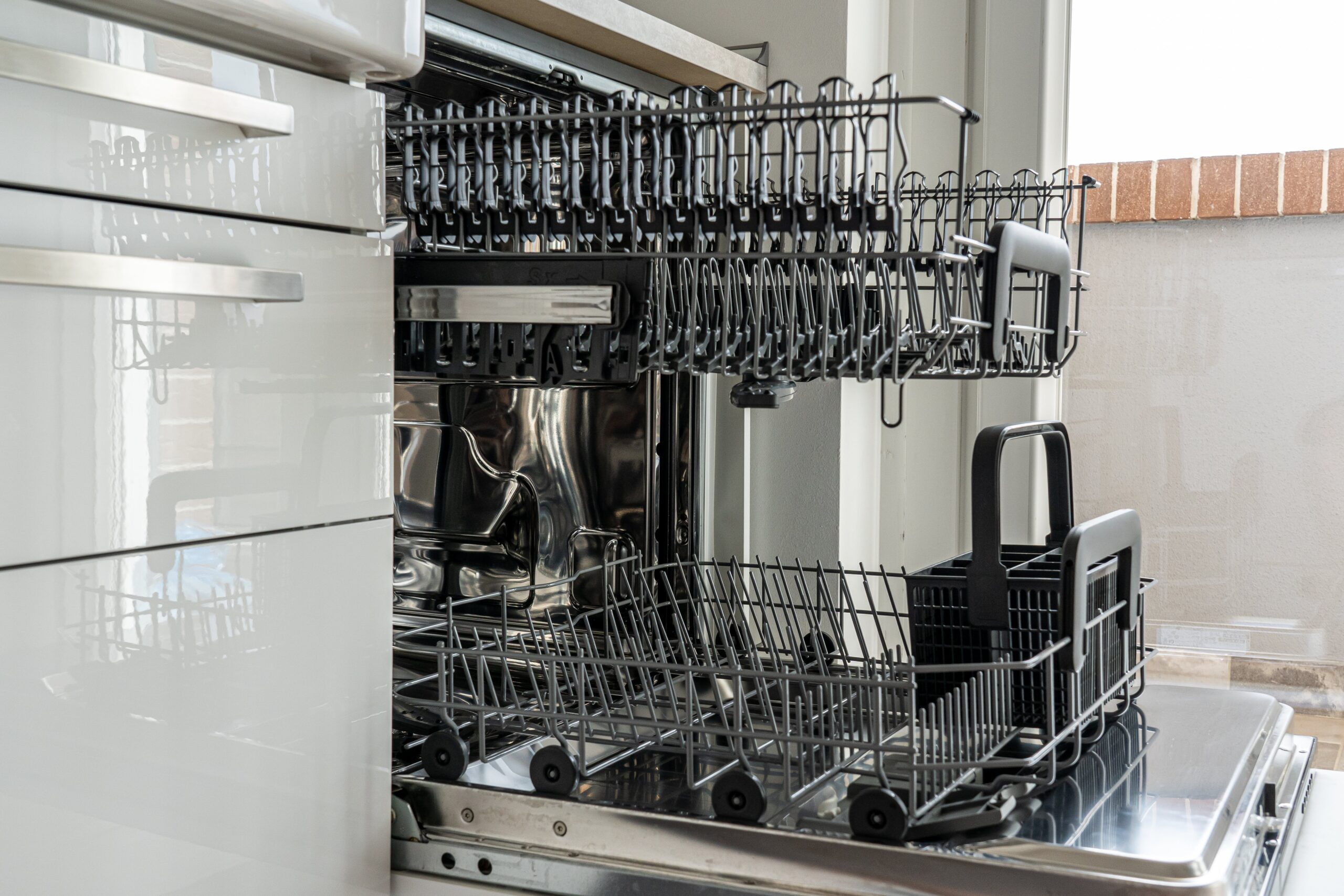The dishwasher, invented in the 19th century, has become a lifesaver and a lifesaver for all women. It not only saves our time and effort, but also water consumption, and can cope with cleaning better due to high temperatures.
In order for the kitchen assistant to bring only benefit to the family, not damage – you need to know what dishes can be washed in it, and which ones are forbidden. What other functions do modern models have? Read more at cookingtopgear.
Dishwasher stoplist
Regardless of the material, it is impossible to wash dishes with stickers. Under the influence of water and temperature, these pieces of paper will peel off the surface and get into the filters. As a result, the dishwasher broke down.
Wood
Wood and water are not compatible materials. At first, the wood will swell from an excess of moisture, then it will crack and shrivel under the influence of hot drying. All wooden spatulas, cutting boards and stands will become unusable.
Plastic
Plastic objects require special attention. There are several types of plastic with different characteristics and properties. The key point is the melting point of the plastic. For example, dishes made of food-grade polypropylene (PP) or polyethylene terephthalate (PET) can be washed in the dishwasher. And polystyrene (PS) or PVC is strictly forbidden – it will start to melt at high temperatures. In other words, plastic dishes intended for disposable use are not suitable for washing in the dishwasher.
Aluminum
Aluminum and silver are the metals for which household detergents used in washing are the most harmful. The material starts to get dark and covered in plaque. Aluminum dishes after prolonged exposure to water emit ions that stain the dishwasher with metallic deposits, which can lead to breakage of the kitchen assistant. Copperware will be covered with dark stains, which can only be removed by polishing.
Crystal and porcelain
Thin crystal also does not tolerate washing in the dishwasher. At best, you will get scratched products. At worst, they will crack and fall apart.
But porcelain cannot be sent to the dishwasher only under certain conditions: if the product has Golden elements or the pattern is applied over the glaze. But, as a rule, manufacturers put the desired icon on the bottom.
Silver
The reason why silver can’t stand washing in the dishwasher is because of the cleaning products. Tablets and powders contain a fairly large number of components that react with metal. As a result, the silverware is damaged and covered with a dark coating that is almost impossible to wipe off.
The situation is much more unpleasant with silver dishes and plates. After two or three washes, they will remain traces of oxidation. No cleaning products will help the dishes.
Teflon
Pans, pans, multi-cooker containers – everything that has a non-stick coating will lose its properties after several washes in the dishwasher. Under the influence of household products and temperatures, the non-stick layer is thinned.
Knives
In theory, knives calmly tolerate dishwasher procedures. In practice, be prepared to sharpen them each time, as after washing the knives dull.
This applies to graters and any other devices intended for cutting products. They can not only blunt but also scratch the inner walls of the dishwasher. Moreover, washing in the dishwasher will not give the expected effect. In small notches, food particles remain, which are better to clean with your hands.
Thermoses
Sending a thermos to the dishwasher is the same as throwing it in the garbage. You will not only spoil the insulation material but also get an unpleasant smell from stale water.
What can I wash in the dishwasher?
- Ceramic and glass dishes.
- Stainless Steel Products
- Reusable plastic containers.
Using conventional detergents in the dishwasher
One of the common mistakes that happy owners of dishwashers make is using standard detergents. What is the risk? Tools for handwashing form a large amount of foam, which is harmful to the dishwasher. Because of this, the service life is shortened and some parts quickly fail.
There are special powders and tablets for dishwashers. The first ones are used if the dishes are not too dirty. The tablets dissolve longer, so they are used when large quantities of highly contaminated dishes are loaded into the dishwasher. There are rinsers for effective washing. They remove residual detergent as well as microbes and bacteria.
To extend the service life of the dishwasher, use decalcifying agents every six months. And the degreaser – once a month. It removes accumulated fat from the walls and interior of the machine.
Unusual dishwasher application
Most owners use the dishwasher for all 200%. Water procedures are subjected to:
- baby toys (plastic, designer);
- vacuum brushes (pre-cleaned from hair and washed underwater);
- kitchen sponges and cloth napkins;
- glass lampshades and chandelier details;
- toothbrush cups, soap trays, plastic towel holders.
The dishwasher makes life much easier and saves time. Now you don’t have to wash pans by hand. It is enough to remove food residues and put the dishes in the dishwasher compartment. You just need to know which material is suitable for washing, and which is better to wash by hand. Timely care and cleaning will keep your dishwasher in top condition for as long as possible.
